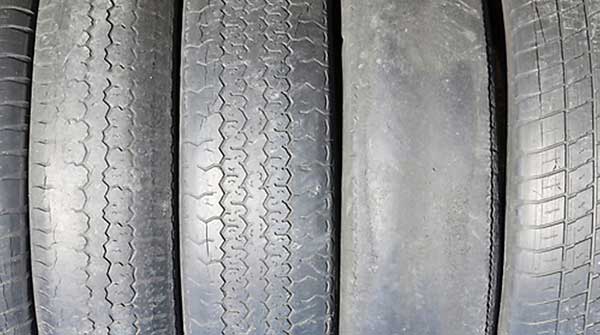Only one in five Canadians is driving with the correct air pressure in their tires. Tire care is important for both safely and expense
 Heading out on a road trip? You can save money and have a smoother and safer ride by checking your tires. Tire care is often neglected; as long as the vehicle moves, tires are often ignored.
Heading out on a road trip? You can save money and have a smoother and safer ride by checking your tires. Tire care is often neglected; as long as the vehicle moves, tires are often ignored.
Most people – three in five Canadians – are driving on under-inflated tires. That puts added strain on the sides of the tires when making turns, and it also means the centre part of the tire is not in contact with the road’s surface.
“The vehicle is designed to have a correct amount of air in the tires – and it’s the air in the tires that’s holding the weight of the vehicle,” explains Jennifer Taylor, senior technical product specialist at Continental Tire Canada.
She says there is tremendous pressure on the tires during acceleration, braking, and when turning – and that’s why having the correct amount of air in the tires is essential.
 |
| Related Stories |
| Winter tires should be mandatory across Canada
|
| Winter tires are essential when the snow falls
|
Taylor says one in five Canadians have over-inflated tires, which means only the centre part of the tire is coming in contact with the road surface, reducing traction and braking – and increasing the risk of an accident, especially in an emergency. Over-inflation also means the sides of the tires cannot flex as they should when making turns.
“On average, only one in five Canadians is driving with the correct air pressure in their tires. The best thing for proper care of tires is to have them properly inflated,” Taylor says.
Improper inflation means the tires don’t roll as well as they could – and that added friction means you’re burning more gas – or reducing your range in an electric vehicle.
Tire pressure should be checked once a month.
Proper inflation is only one part of the care and maintenance of tires. It’s also important to know when tires need to be replaced – which will happen eventually.
“What is unavoidable is tire wear. As a tire accelerates, there is what’s called ‘natural slip’ – that forward motion that causes tire wear. Accelerating slowly reduces that natural wear, and so does gradual braking,” says Taylor.
As the tread wears down, she says, “your handling, directional stability and your braking distance are all affected.”
Continental recommends replacing tires when the tread depth is down to 4/32nds of an inch, or just over three mm.
When shopping for new tires, Taylor says it’s critical to match your tires with your type of driving.
“You don’t want an all-terrain tire on a passenger vehicle that is only going to be used on the highway, nor do you want a passenger tire designed for asphalt or concrete roads on gravel. You want to match the applications, and how the vehicle will be primarily used.”
If you have an electric vehicle (EV), there are some things to keep in mind that you didn’t need to think about when buying tires for a gas-powered vehicle.
“The electric vehicle is different than an internal combustion vehicle because you have instant torque and acceleration,” Taylor says. That puts added stress on the tires of EVs. EVs are also generally heavier than their gasoline counterparts, so different tires are needed to handle the extra weight.
Also, with no engine noise in EVs, noise from tires rolling on the road is more noticeable. So shopping for “quiet” tires is more important for EV owners. For example, Taylor says the new ContiSilent tires have an extra layer inside to help dampen the sound from the tires.
By checking to make sure the correct amount of air is in your tires, and the tread is good, your ride will be smoother and safer. You will also save money by burning less fuel when there is less rolling resistance from the tires. And when it comes time to shop for new tires, the most expensive is not necessarily the best choice; go for tires that match your type of driving.
Dale Johnson is an award-winning author, broadcaster and journalist who has worked in TV, radio, print and online.
For interview requests, click here.
The opinions expressed by our columnists and contributors are theirs alone and do not inherently or expressly reflect the views of our publication.
© Troy Media
Troy Media is an editorial content provider to media outlets and its own hosted community news outlets across Canada.


